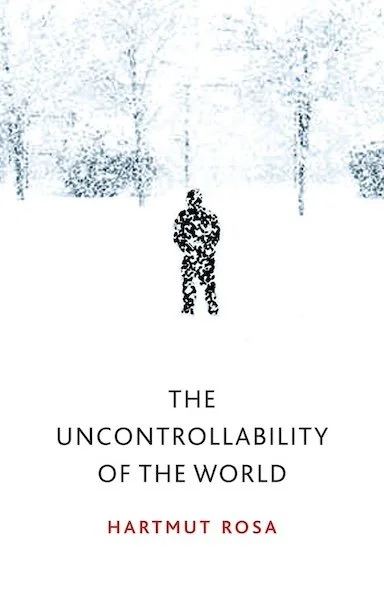What’s the *real* reason for change?
The Change Question: What’s the real reason for change?
One of the seven questions from The Coaching Habit, the book I’m best known for, is “the focus question”:
What’s the real change here for you?
Of all the questions, it’s the one I’m most insistent on getting the language *just so*. It’s the most tightly scripted, and in two ways.
To begin at the end, adding “for you” suddenly makes the question personal and compelling.
It moves it from what might be an abstract, jazz-handsy sort of conversation to something very real. It puts that person in the system.
It’s not (and you can imagine this being said in a snooty British accent), “What, do you theorize, might be the factors of resistance in this process?” … but rather, “How is this hard for you, and how are you currently right in the thick of it?”
The second very deliberate word is “real.”
There’s a world, a universe, a multiverse of difference between “What’s the challenge?” and “What’s the real challenge?” You can feel it, even as you read it.
My pod interview with the delightfully blunt Margaret Heffernan brought that home for me. If you’ve listened to it, you might remember her saying, “If you're doing a cost-cutting program. Call it that. You know, let's not pussyfoot around. You fool nobody, and you just make people incredibly cynical.”
But put aside the marketing and the spin for a moment that you might be using to influence others.
Do you know the real reason for change?
Do you know what really matters to your CEO, your change sponsor, the power brokers in the SLT, your boss, and the other figures of influence and power?
It’s one thing to figure out how to pitch a transformation project to an audience.
It’s another one to fall for your own PR and not know what’s really going on, or why.
Pod Wisdom: A change “truism” that drives Katy Milkman NUTS
Katy Milkman, from the Change Signal episode "The High School Secret to Org Change":
“My biggest bugbear is visualized success.
Like, just close your eyes and imagine a good result and what does that look like? What does it feel like?
There's zero evidence that that helps and if anything, what we know is it's really critical to do these kinds of pre-mortems where we're pessimists, where we think about what could go wrong so that we can solve those obstacles before they're upon us.”
Listen to my full conversation with Katy now
Katy Milkman is a professor at the Wharton School at the University of Pennsylvania, a pre-eminent researcher on individual behaviour change, author of How to Change: The Science of Getting from Where You Are to Where You Want to Be, and host of the podcast Choiceology where she explores making smarter choices through behavioural science.
Overcome the Toughest Workplace Challenges with Relational Curiosity
Tense conversations, feedback that doesn’t land, and frequent miscommunication—these challenges are exhausting and all too common.
The latest research paper from Box of Crayons, Navigating a Fractured Workplace, uncovers the root of these issues and reveals how Relational Curiosity can foster trust, strengthen collaboration, and help teams thrive.
Download the white paper today and take your first step toward a stronger, more connected workplace.
Box of Crayons is a Change Signal sponsor.
Book Wisdom
The great ‘Western process of rationalization’ that unfolds over the centuries and the core of which consists in making life and the world calculable, manageable, and predictable–scientifically, technologically, economically, legally, politically, and finally, also in everyday life.
This means nothing less than making the world controllable, and Weber identifies this as … a process of progressive alienation, of the world’s falling mute, which he describes as a ‘disenchantment.’
The Uncontrollability of the World, Hartmut Rosa.
This is a short, dense book … philosophical, provocative, and probably not on many “change management” curriculum reading lists. 🙂 I have a core belief that part of the tension of change is the dance between our deep desire to control it all, and the impossibility of that. I think Rosa’s words–alienation, disenchantment–are powerful.
The Last Word: Tom Feltenstien and Mac Anderson
"Change is good. You go first."
~ Tom Feltenstien and Mac Anderson


